
Z okazji przypadającego na 27 stycznia Międzynarodowego Dnia Pamięci o Ofiarach Holokaustu uczniowie klas 1a, 1b, 1c, 1d, 2b, 2d, 2e oraz 3a wysłuchali fragmentów przemowy Mariana Turskiego, która zostaławygłoszona 27 stycznia 2020 roku podczas obchodów rocznicy wyzwolenia obozu Auschwitz-Birkenau. Na lekcjach polskiego prowadzonych przez Pana Profesora Gawła Janika oraz Panią Profesor Anitę Jasińską uczniowie rozmawiali o miejscu i znaczeniu dekalogu we współczesnym świecie oraz zasadności dodania kolejnego, jedenastego pouczenia: Nie bądź obojętny. Ponadto zaprezentowane zostały zeznania ocalałych z Zagłady zebrane przez Centralną Żydowską Komisję Historyczną, a szczególną uwagę poświęcono losom wywiezionej do obozu mieszkance Będzina – Geni Lewkowicz.
Poniżej fragment przemowy Mariana Turskiego:
Jedenaste przykazanie: „Nie bądź obojętny”
Kiedy dzisiaj spotykam się z młodymi, zdaję sobie sprawę, że […] wydają się troszkę znużeni tym tematem: i wojna, i Holokaust, i ludobójstwo. […] Prezydent Austrii, pan Alexander Van der Bellen, […] użył takie sformułowania: „Auschwitz nie spadł z nieba”. Można powiedzieć, jak to się u nas mówi: oczywista oczywistość. No jasne, że nie spadł z nieba. Może się to wydawać banalnym stwierdzeniem, ale jest w trym głęboki i bardzo ważny do zrozumienia skrót myślowy… […] Zaczynamy się oswajać z myślą, że można kogoś wykluczyć, że można kogoś stygmatyzować, że można kogoś wyeliminować. I tak powolutku, stopniowo, dzień za dniem ludzie zaczynają się z tym oswajać – i ofiary, i oprawcy i świadkowie. […] To już jest straszne, niebezpieczne! To jest początek tego, co za chwilę może nastąpić. […] Ludzi powoli ogarnia znieczulica, obojętność. Przestają reagować na zło. I wtedy władza może sobie pozwolić na dalsze przyspieszenie procesu zła. […] I tutaj sprawdza się to, co powiedział pan prezydent: Auschwitz nie spadł nagle z nieba. Auschwitz tuptał, dreptał małymi kroczkami, zbliżał się, aż stało się to, co stało się tutaj. […] Primo Levi użył kiedyś takiego sformułowania: „To się wydarzyło, to znaczy, że się może wydarzyć. To znaczy, że się może wydarzyć wszędzie, na całej ziemi”. […] My w Europie w większości wywodzimy się z tradycji judeochrześcijańskiej. Zarówno ludzie wierzący, jak i niewierzący przyjmują jako swój kanon cywilizacyjny dziesięcioro przykazań. […] Prezydent Międzynarodowego Komitetu Oświęcimskiego Roman Kent […] wymyślił jedenaste przykazanie, które jest doświadczeniem Szoa, Holokaustu, strasznej epoki pogardy. Brzmi ono tak: „Nie bądź obojętny”. I to chciałbym powiedzieć mojej córce, to chciałbym powiedzieć moim wnukom. Rówieśnikom mojej córki, moich wnuków, gdziekolwiek mieszkają: w Polsce, w Izraelu, w Ameryce, w Europie Zachodniej, w Europie Wschodniej. To bardzo ważne. Nie bądźcie obojętni, jeżeli widzicie kłamstwa historyczne. Nie bądźcie obojętni, kiedy widzicie, że przeszłość jest naciągana do aktualnych potrzeb polityki. Nie bądźcie obojętni, kiedy jakakolwiek mniejszość jest dyskryminowana. Istotą demokracji jest to, ze większość rządzi, ale demokracja na tym polega, że prawa mniejszości musza być chronione. Nie bądźcie obojętni, kiedy jakakolwiek władza narusza przyjęte umowy społeczne, już istniejące. Bądźcie wierni temu przykazaniu. Jedenaste przykazanie: „Nie bądź obojętny!”. Bo jeżeli będziecie obojętni – to nawet się nie obejrzycie, jak na was, na waszych potomków, jakiś Auschwitz nagle spadnie z nieba.
Marian Turski: Jedenaste przykazanie: „Nie bądź obojętny”. W: XI Nie bądź obojętny. Wołowiec 2021, s. 16–21.
——-
International Holocaust Remembrance Day
On the occasion of the International Holocaust Remembrance Day on January 27, students of classes 1a, 1b, 1c, 1d, 2b, 2d, 2e and 3a listened to fragments of Marian Turski’s speech, which was delivered on January 27, 2020 during the celebration of the anniversary of the liberation of the Auschwitz-Birkenau camp . During Polish lessons conducted by Professor Gaweł Janik and Professor Anita Jasińska, students talked about the place and importance of the Decalogue in the modern world and the advisability of adding another, eleventh instruction: Do not be indifferent. In addition, testimonies of Holocaust survivors collected by the Central Jewish Historical Commission were presented, and special attention was paid to the fate of a resident of Będzin, Genia Lewkowicz, who was deported to the camp.
Below is a fragment of Marian Turski’s speech:
The Eleventh Commandment: Thou Shalt Not Be Indifferent
Today, when I meet young people, I’m aware that […] they seem a bit fed up with this subject: the war, the Holocaust and Shoah and genocide. […] The President of Austria, Mr. Alexander Van der Bellen, used the sentence Auschwitz didn’t come out of the blue. Yes. That is absolutely right. Quite clearly, Auschwitz did not come out of the blue. Though this might sound banal, the statement’s mental shorthand is very profound and is enormously important for us to understand. (…) We’ve already started to accept the thought that you can exclude somebody, you can stigmatize somebody, you can ostracize somebody. And so, slowly, step by step, day by day, people start getting used to it – the victims, the perpetrators, the witnesses, and those we call the bystanders — they’re all getting used to the idea that this minority that gave us Einstein, Nelly Sachs, Heinrich Heine and the Mendelssohnsis somehow different, that they can be pushed out of the community, that these people are alien, they spread germs and epidemics. Now this is awful and dangerous. It’s the beginning of what may soon happen next. […] At the same time, the authorities see that people are growing desensitized, indifferent. They’ve stopped reacting to what’s bad. And then those in power let themselves accelerate the process of evil. […] And this reveals the truth of what President Van der Bellen said, that Auschwitz didn’t come out of the blue. In tiny steps, Auschwitz inched closer and closer, until what happened here happened. […] Primo Levi was one of the most famous prisoners of this camp. He once said, It happened, therefore it can happen again. It can happen, and it Can happen anywhere. […] We in Europe come, for the most part, from the Judeo-Christian tradition. Both religious and nonreligious people see the Ten Commandments as a cultural standard. Roman Kent, president of the International Auschwitz Committee, […] came up with an eleventh commandment, based on the experience of the Shoah, the Holocaust, that awful age of degradation. It is: Thou shalt not be indifferent. This is what I want to say to my daughter, to my grandchildren, to all their contemporaries wherever they live: in Poland, in Israel, in America, Western Europe, Eastern Europe, everywhere. This is very important. Thou shalt not be indifferent when you come across lies being spread about history. Thou shalt not be indifferent when you see the past being manipulated for current political gain. Thou shalt not be indifferent when any minority whatsoever is discriminated against. The essence of democracy is that the majority rules, but democracy depends on the rights of minorities being protected. Thou shalt not be indifferent when those in power — whoever they may be – violate existing social contracts. Keep faith with this commandment, the eleventh commandment: Thou shalt not be indifferent. Because if you are indifferent, before you know it, another Auschwitz will come out of the blue for you or your descendants.
Marian Turski: The Eleventh Commandment: Thou Shalt Not Be Indifferent. In: XI Thou Shalt Not Be Indifferent. Wołowiec 2021, s. 148–153.















































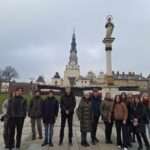




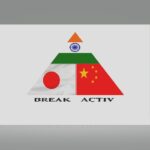


















































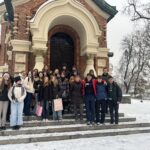





















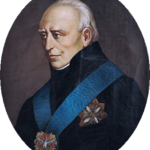













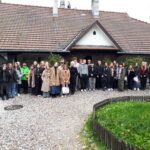






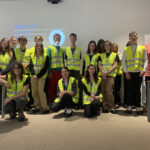



































































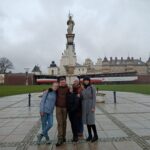






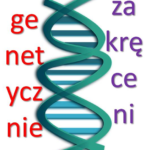


















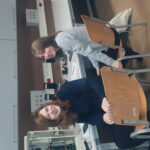



































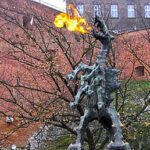




































































































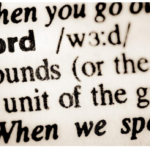






























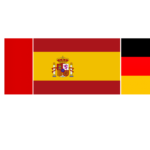






















































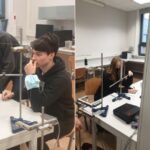























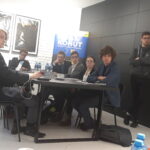













































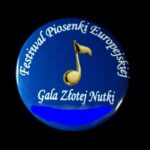


























































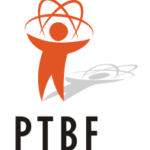








































































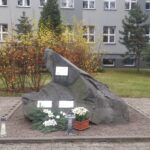











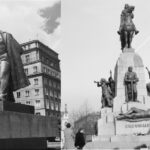

















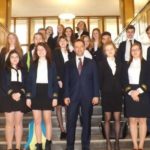




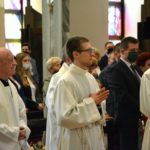








© IV LO z Oddziałami Dwujęzycznymi im. Stanisława Staszica
